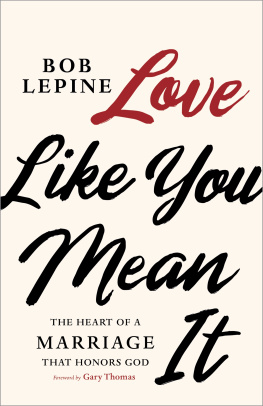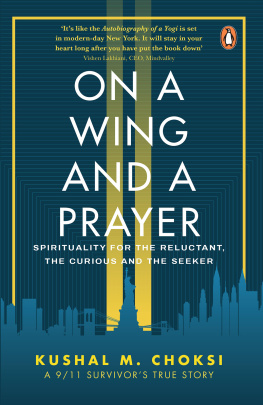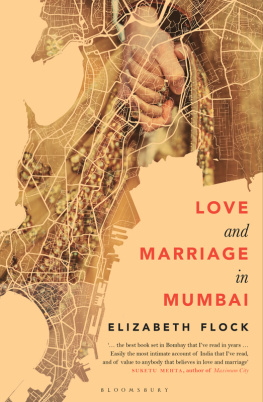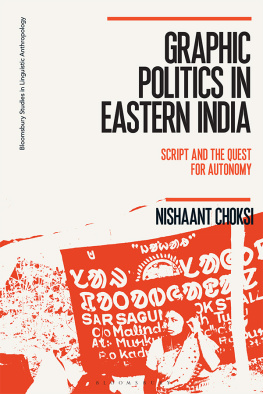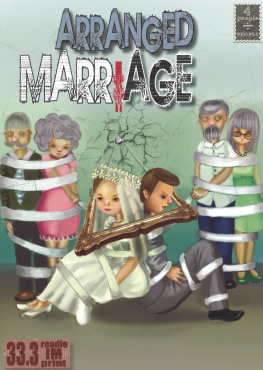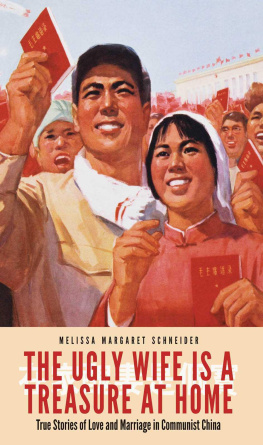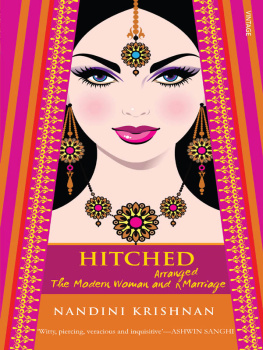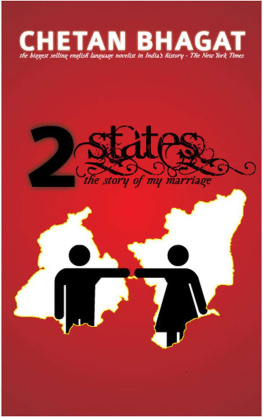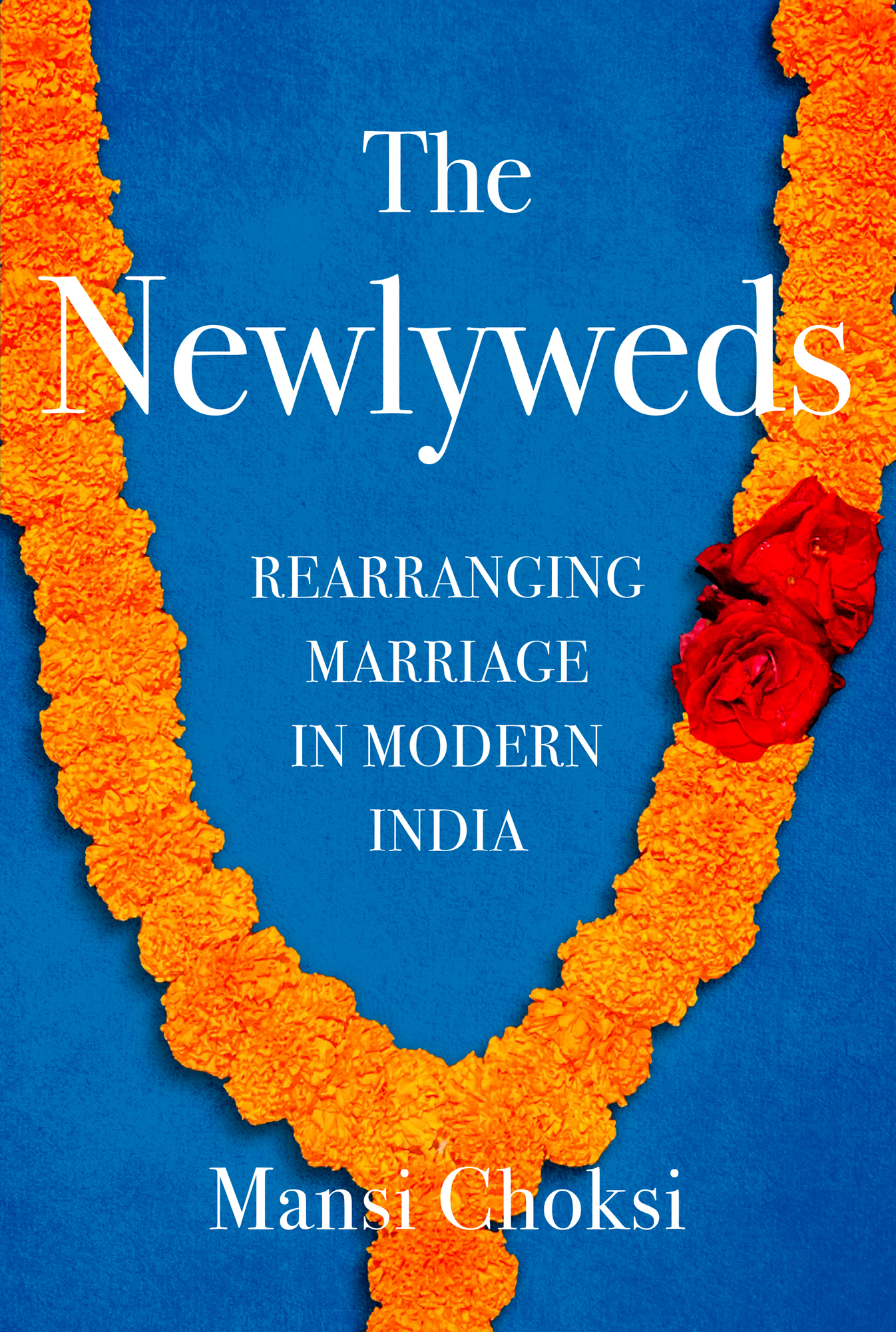Contents
Guide
The Newlyweds
Rearranging Marriage in Modern India
Mansi Choksi
For Suhail and Kabir
Cast of Characters
NEETU AND DAWINDER
Neetu Rani, the daughter of a landlord from the village of Kakheri in the northern Indian state of Haryana. She is twenty-one, trim and stylish, with the ability to talk about the lives of Bollywood actors as if they are next of kin. She is a Hindu of the Panchal caste, a rank of goldsmiths, stonemasons, and carpenters, and is expected to stay home until she can be transferred to a husband through an arranged marriage.
Dawinder Singh, a twenty-four-year-old neighbor of Neetu Rani and the son of a retired truck driver. He is a Sikh of the Mehra caste of palanquin bearers and boatsmen that is considered marginally lower in the complex web of caste structure. He has a soft, cheerful face, a headful of curls, and a nervous laugh.
Gulzar Singh, also known as Kala, Neetus father. He is the short-tempered owner of a firewood shop and a landlord. With two successful businesses, a two-bedroom house, and a son in the Indian Navy, he is considered an influential man in the village.
Sudesh Rani, Neetus mother and Kalas wife. She quietly protects her daughters from her husbands temper in a place where women are expected to fade into the background in the presence of men.
Gurmej Singh, Dawinders father, a sickly man who drove trucks for a living until his eyesight grew weak. He dreams of growing old in his ancestral fields in the village of his birth.
Sukhwinder Kaur, Dawinders mother, a god-fearing woman and devoted wife.
Kulwant Kaur, Dawinders aunt, who lives in a neighboring province. She is a wealthy veterinarians wife with jet-black hair and loose wrinkled skin who prides herself on taming feral daughters-in-law.
Sanjoy Sachdev, chairman of the Love Commandos, a vigilante group that protects couples marked for honor killings by their families. He likes to be addressed as Baba (Grandfather), even though he is only eighteen with thirty-eight years of experience.
Manoj and Babli, young lovers from a village near Kakheri, who are murdered for bringing dishonor to their families by defying the caste system and marrying each other.
MONIKA AND ARIF
Monika Ingle, the youngest daughter of a Hindu trader of double cotton mattresses in the western city of Nagpur. She is eighteen, small, and delicate, with luminous skin and a glossy side braid.
Mohammad Arif Dosani, called Arif, the son of a Muslim shopkeeper in the village of Basmath who dreams of becoming a policeman. He is twenty-three, with pockmarked cheeks, a circular nod, and a heart he keeps ice cold while flirting with city girls.
Bhagyashri Ingle, called Bhaga, Monikas older sister. She is bold and outspoken. She meets Arif at a training for police constable recruits, and they become fast friends.
Shridhar Ingle, Monika and Bhagyashris father. He is a trader of mattresses and the head of the Ingle household.
Ranjana Ingle, Monika and Bhagyashris mother. She is a mild-mannered housewife.
Bashir Dosani, Arifs father. He is a small-boned man with a poetic bent who owns a childrens clothes shop near a mosque in the village of Basmath.
Tabssum Dosani, Arifs mother, a bossy woman who likes to deliver her insults in a voice dripping with honey and who appoints herself in charge of the household and the business.
Akida Khemani, Arifs aunt, who also lives in Nagpur, with her own family. She loves Arif as much as her own children.
Vishal Punj, also known as Bajrangi Paji Saheb, the chief convener of the Bajrang Dals Nagpur Metropolitan chapter, a belligerent Hindu nationalist youth group.
Madhav Sadashiv Golwalkar (190673), a zoology professor from a village near Nagpur, who took over the reins of the Rashtriya Swayamsevak Sangh, a Far Right quasi-militant group devoted to the creation of a Hindu nation.
RESHMA AND PREETHI
Reshma Mokenwar, a twenty-eight-year-old sales assistant from a Mumbai suburb. She has a heart-shaped face stained yellow from a lifetime of turmeric fairness treatments and a tongue sharpened through the knife grinder of a bad marriage.
Preethi Sarikela, an eighteen-year-old daughter of Reshmas fathers cousin sister from the village of Bazarhathnoor in the southern state of Telangana.
Babu Mokenwar, Reshmas father, who works as a driver in the city of Mumbai.
Rekha Mokenwar, Reshmas mother, who earns a living by scrubbing dirty dishes.
Kishen Mokenwar, the younger of Reshmas two brothers, who is named after the Hindu god of love and dreams of becoming a local politician.
Narsa Sarikela, Preethis mother and Reshmas aunt, a farmhand whose small frame is hunched over from a lifetime of picking cotton in the fields of Bazarhathnoor.
Ushanna Sarikela, Preethis father, a worker in the villages irrigation department.
Introduction

F or most of my mothers life, she has lived in the house she was born in. It is a roomy apartment on the second floor of a building with curving, dark stairs in an old part of Mumbai. Every afternoon, the sunlight presses through the stained glass windows of the corridor. Its big bedroom windows open into the canopies of trees. There is a powder-blue wall populated with old photographs of the city, and the drawers still sometimes reveal the belongings of people who spent part of their lives in this house, then moved on to go somewhere else. They include my great-grandparents, grandparents, uncles and aunts, cousins, my sister, and me.
When my mother was eighteen, she fell in love with a man and married him against her familys wishes. After her eleven-year-long marriage crumbled, she returned to the house with two daughters. Even though she has lived in the same place for forty-eight years since, she carries an air of displacement everywhere she goes. She is always in a hurry. In a hurry to get somewhere. In a hurry to return. In a hurry to leave again. But to go where?
When I met the young couples whose stories make up this book, they were consumed with that same hurry. I met Neetu and Dawinder days after they had run away from their village and landed in the grip of a journalist-activist who promised to protect them. Weeks later, I met Monika and Arif when they were on the run from right-wing vigilantes. Finally, when I met Reshma and Preethi, a lesbian couple struggling to start their lives together in a town where they knew no one, I came to realize that the pursuit of love and its aftermath was ultimately a kind of displacement.
Two in every three Indians is under the age of thirty-five. No other country has more young people. Yet we are torn about whether it is acceptable to be young and do the things young people do. If a survey asked us who we were or where we were going, we were expected to say that we are different from our parents because we look to the future and not to the past. Recently, such a survey was conducted, and it revealed that half our young people consider caste and religion to be the defining aspects of our identity. One-third of us believe that intercaste marriages will destroy Indian society. Half of us are completely opposed to interreligious marriage. Only one in seven of us approves of dating before marriage. Four in five of us married with permission from our parents, and less than 6 percent of us chose our own partners. Most of us think like our parents and conduct our lives based on the fear of disappointing them.



